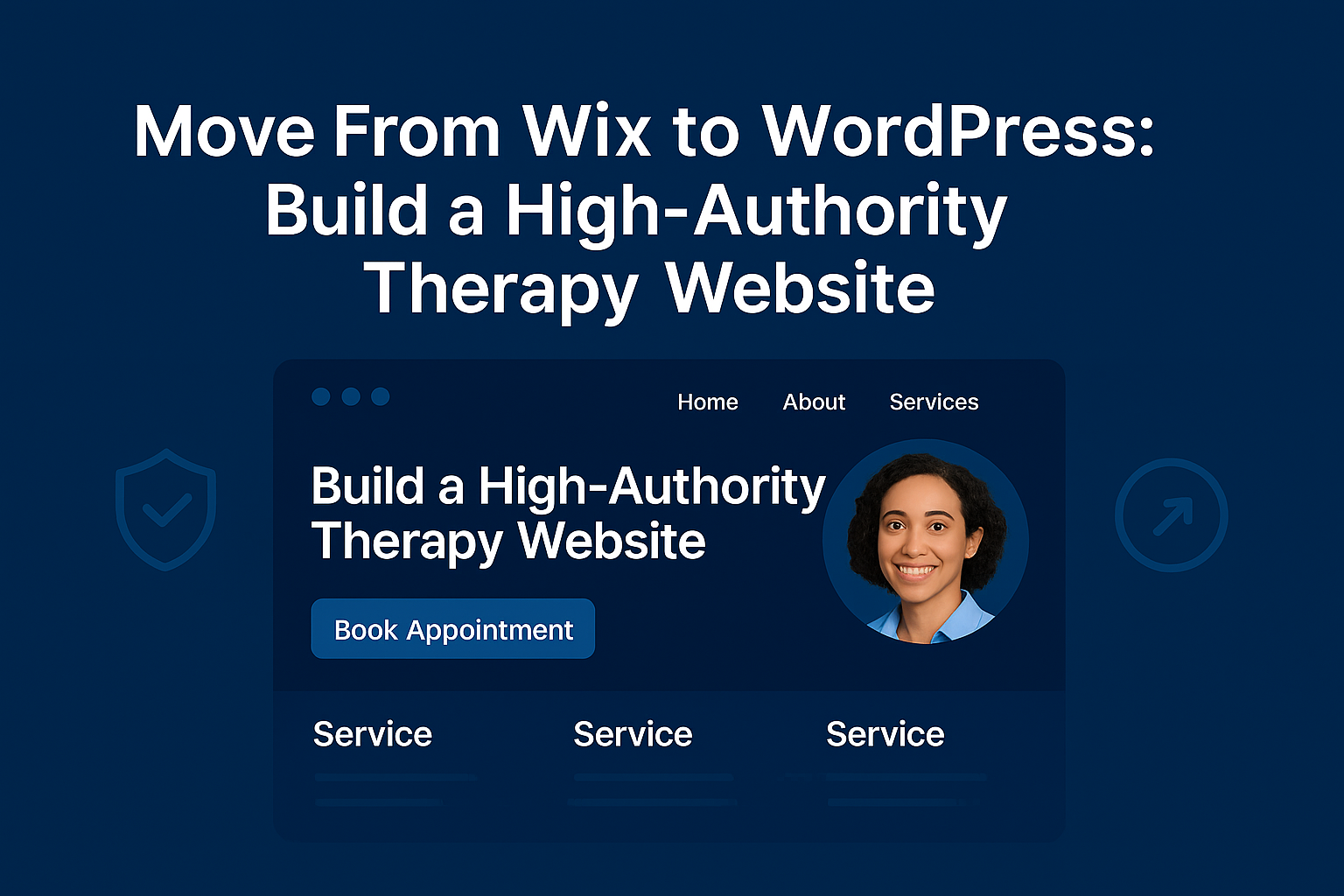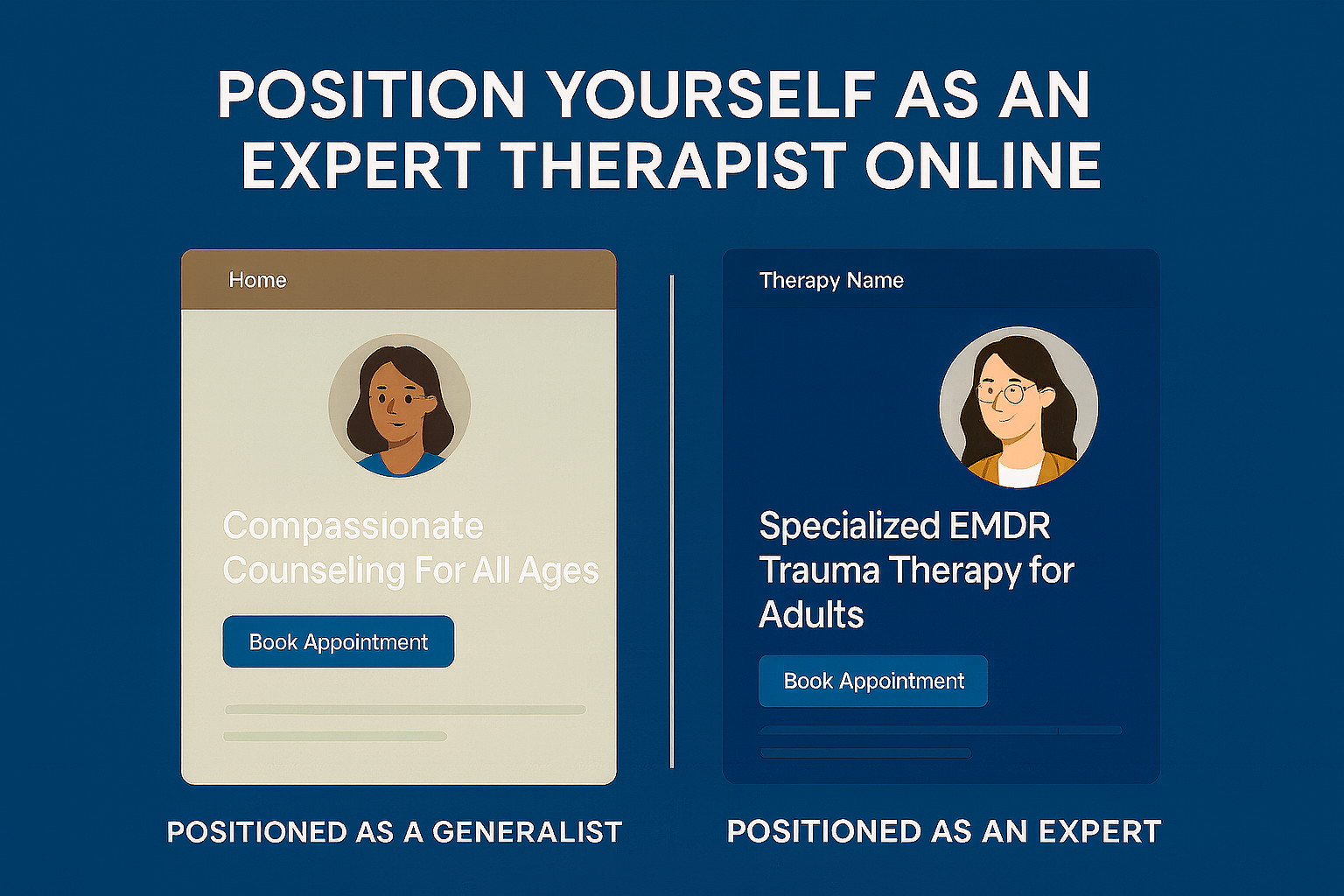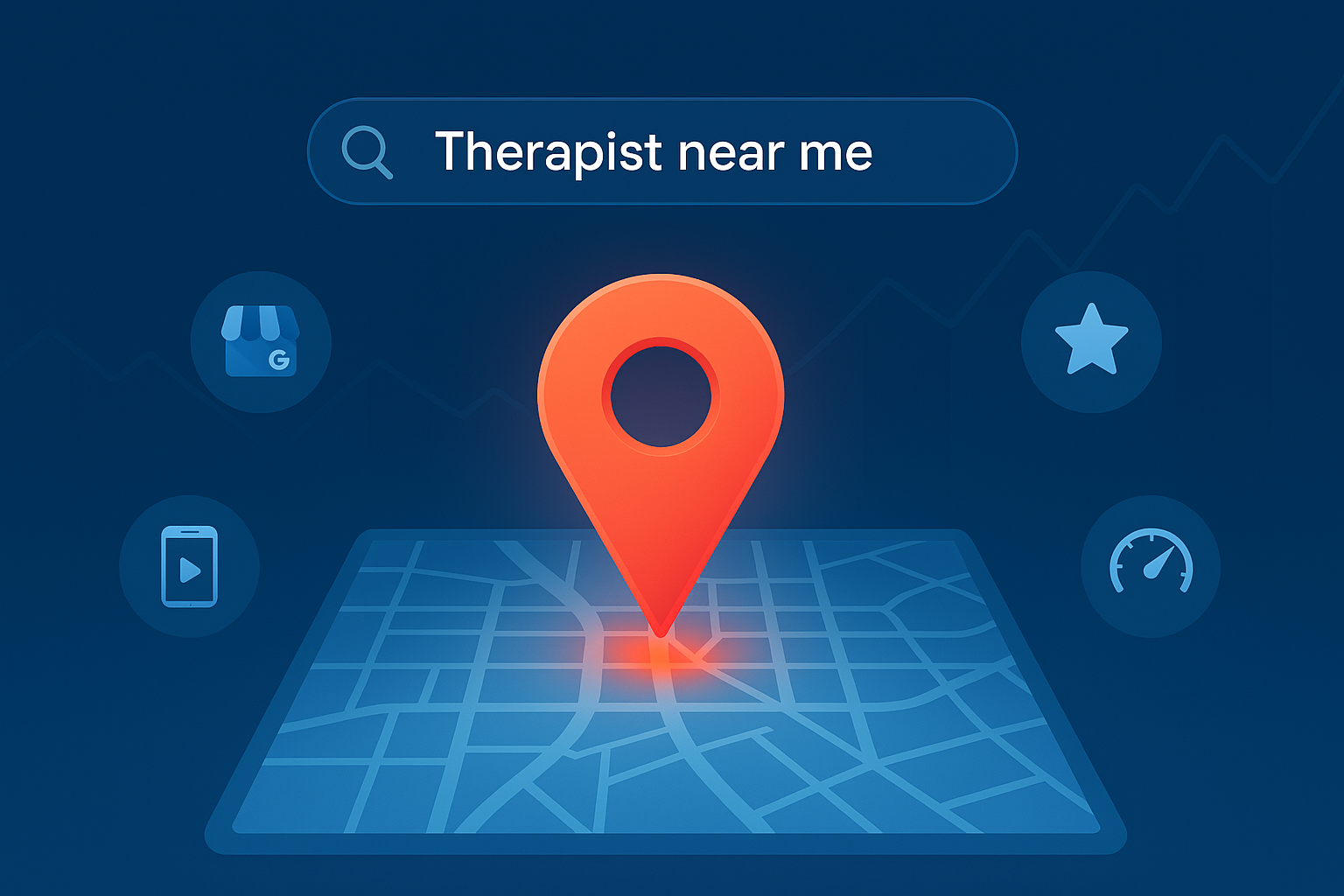Introduction to Choosing a Website Developer
Selecting the right developer for your online therapy website is crucial for building a professional, secure, and client-friendly platform in 2025. Online therapy website development requires expertise in mental health regulations, user experience, and digital marketing to attract and retain clients. A well-chosen developer ensures your site is HIPAA-compliant, optimized for search engines, and tailored to your practice’s needs. This guide outlines eight key factors to consider when choosing a developer for online therapy website development, helping therapists make informed decisions. For expert digital solutions, visit Mental Health IT Solutions.
Why Choosing the Right Developer Matters
Your website is often the first interaction clients have with your practice, shaping their trust and decision to book. Effective online therapy website development delivers a site that’s intuitive, secure, and visible in searches like “therapist near me,” with 75% of users judging credibility based on design (Stanford Web Credibility Research). The right developer aligns technical expertise with your practice’s goals, saving time and maximizing ROI.
- Key Benefit: Creates a professional, client-focused online presence.
- Challenge: Requires vetting for specialized mental health expertise.
Explore digital strategies at The Ultimate Digital Marketing Guide.
1. Verify HIPAA Compliance Expertise
HIPAA compliance is non-negotiable for online therapy website development to protect client data and avoid legal risks. Ensure the developer has experience implementing secure hosting, encrypted forms, and HIPAA-compliant teletherapy integrations. Ask for examples of past mental health projects and their compliance protocols to confirm they understand regulations like data encryption and secure storage.
- Request a HIPAA compliance checklist from the developer.
- Confirm use of secure platforms like SimplePractice.
- Check for regular security audit processes.
For compliance tips, see HIPAA-Compliant Web Design.
2. Assess Mental Health Industry Experience
A developer with experience in online therapy website development understands the unique needs of therapy practices, such as client-focused design and mental health-specific SEO. Review their portfolio for projects with therapists or healthcare providers, and ask about familiarity with tools like EHR systems or teletherapy platforms. Industry expertise ensures the site resonates with your audience and meets professional standards.
- Look for at least 2–3 mental health website projects.
- Ask about integration with tools like TherapyNotes.
For industry insights, check How to Optimize Your Mental Health Website.
3. Evaluate Design and User Experience Skills
A user-friendly website is essential for online therapy website development, ensuring clients can navigate services, book sessions, and access resources effortlessly. The developer should excel in creating responsive, visually appealing designs with intuitive navigation and clear calls-to-action (CTAs). Request mockups or demos to assess their ability to balance aesthetics with functionality, prioritizing mobile responsiveness for 60% of traffic (Statista).
- Request a mobile-friendly design prototype.
- Ensure CTAs like “Book Now” are prominent.
For design strategies, visit Social Media for LMFTs.
4. Confirm SEO and Marketing Knowledge
SEO expertise drives visibility in online therapy website development, helping your site rank for terms like “online therapy in [city].” The developer should understand keyword optimization, meta tags, and local SEO to attract clients. Ask about their approach to integrating marketing tools, such as Google Analytics or email campaign plugins, to support practice growth.
- Verify experience with tools like Yoast SEO.
- Request a plan for local SEO optimization.
For SEO tips, see Mental Health Therapist Website SEO.
5. Check Technical Reliability and Support
Reliable technical performance is critical for online therapy website development, ensuring fast load times (under 3 seconds, per Google) and minimal downtime. Ask about the developer’s hosting solutions, maintenance plans, and post-launch support. A developer offering ongoing updates and troubleshooting prevents technical issues that could deter clients or harm SEO rankings.
- Confirm 99.9% uptime with hosting providers.
- Request a maintenance contract outline.
For reliability strategies, check Leveraging SEO for Mental Health.
6. Review Integration Capabilities
A developer for online therapy website development should seamlessly integrate tools like teletherapy platforms, EHR systems, or booking software to streamline operations. Confirm their ability to connect with platforms like SimplePractice or Calendly (HIPAA-compliant versions) for scheduling, billing, or client communication. Integration enhances efficiency and client experience, reducing administrative burdens.
- Ask for examples of integrated mental health tools.
- Ensure compatibility with your existing systems.
For integration tips, visit Content Marketing Strategies.
7. Evaluate Cost and Transparency
Cost is a key factor in choosing a developer for online therapy website development, but transparency ensures you avoid hidden fees. Request detailed quotes covering design, development, hosting, and maintenance, with budgets typically ranging from $3,000–$15,000 for therapy sites (based on industry standards). Compare value over price, prioritizing developers who offer clear timelines and deliverables.
- Request itemized quotes from 2–3 developers.
- Clarify costs for post-launch updates.
For budgeting advice, see Social Media Marketing Tips.
8. Seek Client Reviews and References
Client feedback provides insight into a developer’s reliability and quality for online therapy website development. Check reviews on platforms like Clutch or Google, and ask for references from past mental health clients. Inquire about project timelines, communication, and post-launch support to gauge their professionalism and commitment.
- Contact at least two references for feedback.
- Look for 4+ star ratings on review platforms.
For vetting strategies, check Local SEO for Mental Health Therapists.
Best Practices for Choosing a Developer
To select the right developer for online therapy website development:
Start by defining your practice’s needs, such as teletherapy integration or local SEO, and create a shortlist of developers with mental health expertise. Request proposals, compare portfolios, and prioritize those offering HIPAA compliance and ongoing support. Partner with a developer who aligns with your budget and vision, and integrate the site with marketing channels like social media for maximum impact. For advanced strategies, explore Mental Health Marketing Agency.
Website Development Tools and Resources
| Tool/Resource | Purpose | Key Feature | Resource |
|---|---|---|---|
| WordPress | Website building | Customizable templates | How to Optimize Your Mental Health Website |
| SimplePractice | Secure integration | HIPAA-compliant booking | HIPAA-Compliant Web Design |
| Yoast SEO | SEO optimization | Keyword guidance | Mental Health Therapist Website SEO |
| Google PageSpeed Insights | Performance testing | Speed diagnostics | Leveraging SEO for Mental Health |
| Clutch | Developer reviews | Client feedback | Local SEO for Mental Health Therapists |
Conclusion
Choosing the right developer for online therapy website development ensures your therapy practice thrives in 2025 with a secure, user-friendly, and visible website. By prioritizing HIPAA compliance, mental health expertise, and SEO capabilities, you can create a platform that attracts clients and supports growth. Vet developers thoroughly, start with clear requirements, and integrate the site with digital marketing for success. Partner with Mental Health IT Solutions for expert website development tailored to therapists.







